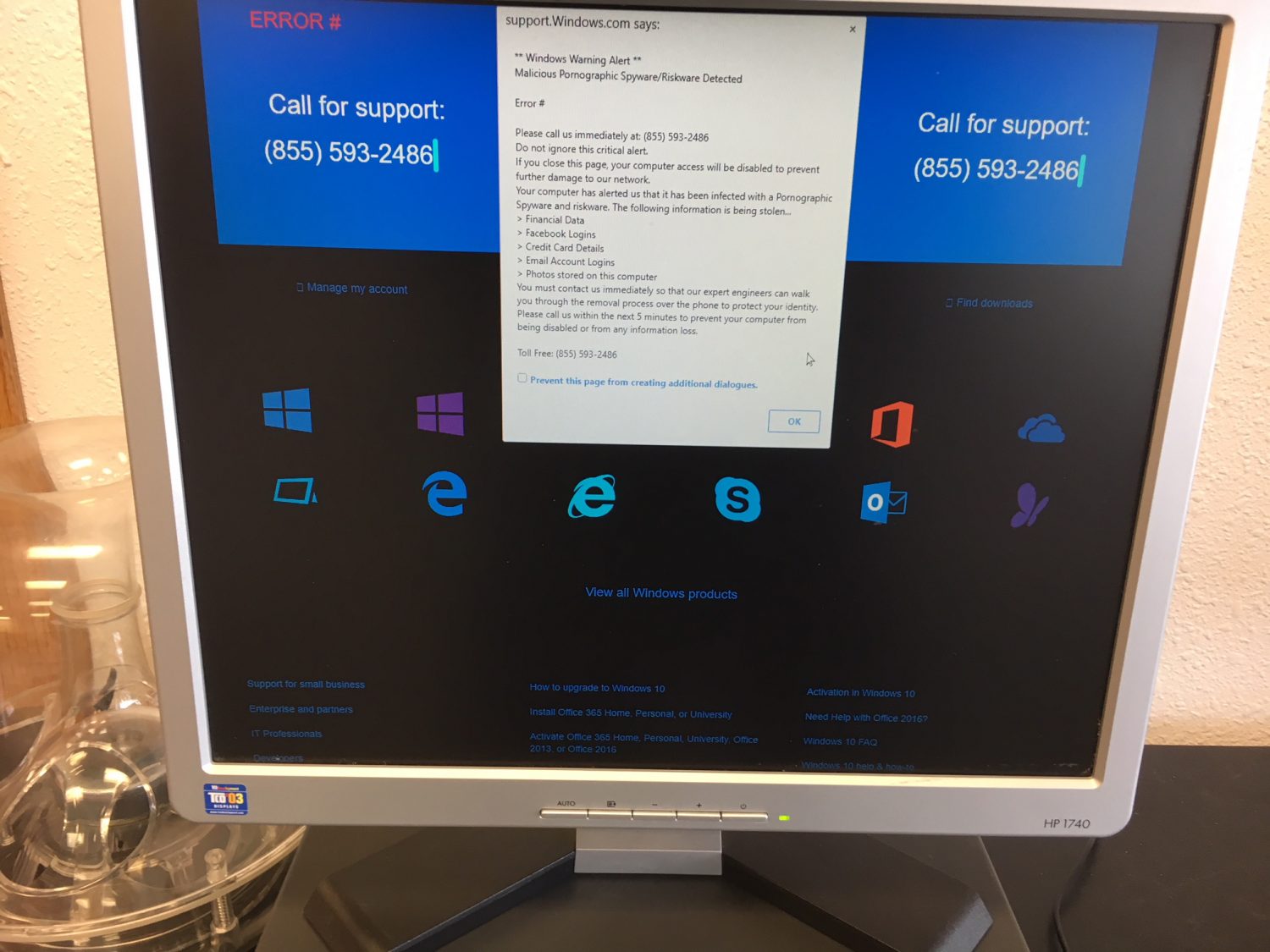Computer scam hitting area

By Kris Leonhardt
MARSHFIELD – Local police reports have been dotted with the details of individuals hit by a popular computer scam, which has affected the country over the past year.
While scammers operating inside of the United States have been stopped, Jason Pleet, co-owner of the Marshfield PC Doctors location, said that many of the scammers are outside of the country and little can be done to stop them.
Pleet said that the scam had slowed down over the Christmas holiday, but is now back in full force.
“We are about 4-8 a week right now, and I have a feeling that there is a lot more that we are not hearing about,” Pleet said.
“What generally happens is a customer will be browsing – we get a lot of it from Yahoo and search links off of there – and they’ll see a message; it comes up full screen, it looks like a genuine computer error message, and it has an 800 number to call.
“If you catch it at this point, no damage is done; there is no infection in the computer. What people will do is call the 800 number. They will then tell you to go to a website to download a program and let them into your computer.
“If you do that, the scam has gone too far. Now, they basically own your computer.”
At that point, Pleet said that the scammer will begin showing you fraudulent error messages and request money to fix what they claim is needed.
“I think the lowest I’ve ever seen is $200, and we’ve had several customers who have had paid thousands of dollars. Once they are in the computer, they will just keep calling you back saying ‘Oh, we’ve found another problem that will cost $500 a fix, $700 a fix,’ and it continues to escalate.”
Pleet said that many times the victim doesn’t even realize the scam is occurring and will begin having other issues with their computer, and that is when they seek assistance with a computer repair service.
Pleet recommends shutting the computer off when they see the fraudulent error message appear on the screen.
“That will short out the scam before it ever begins,” he said.
“If they’ve had somebody in their computer…everything they type in on the screen, they essentially are sitting over their shoulder watching everything. Stop using the computer, change banking passwords with the bank directly – don’t do it over internet on the infected computer, get the computer serviced by a local shop, and after the computer is serviced, change email addresses, (and passwords).”
Leave a reply
You must be logged in to post a comment.






